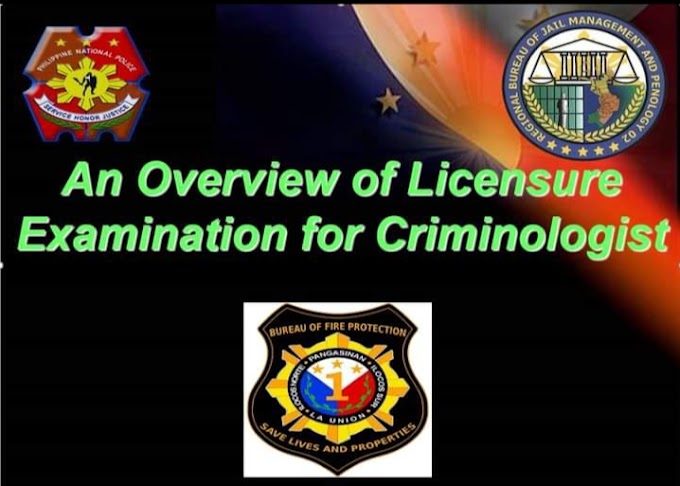Criminal Physiology:
Criminal pro filing is an important topic in criminal psychology.
A criminal psychologist is someone who works in the field of criminal psychology.
Criminal profiling is the practise of relating an offender's activities to the crime scene in order to investigate the fe atures of similar types of criminals so that police or other relevant agencies can capture similar types of offenders just by looking at the crime scene.
Criminal psychology is currently a well With the ability to do reseestablished branch of psychology.
Follow this in the subject of criminal psychology, criminal psychology is like an ocean that is mainly unexplored. Difference between C riminal P sychology and F orensic P sychology Criminal psychology is the study of criminal behaviour to determine a criminal's moti ve, intention, and cognitive process in order to learn why they do what they do.
It is dedicated solely to criminals. Forensic psychology is the application of psychology's teachings and concepts to the justice system in order to improve the justice system 's productivity and efficiency.
As a result, the outcome of the case procedures is unmistakable. History of C riminal P sychology The year 1879 marks the beginning of psychology as a scientific discipline. Since then, psychology has grown significantly, with various subfields such as criminal psychology emerging.
Many psychologists have contributed to the development of criminal psychology by conducting experiments.
For example, Milgram's experiment in the 1960s accurately depicted how a pe rson's normal behaviour changes when they are under duress.
Criminal psychology has its origins in the nineteenth century. As a result, it is a relatively new science within the field of psychology that is continually evolving.
People in various countries are now beginning to recognise the importance of criminal psychology. It is still in its early stages in Pakistan. Eyewitness testimony was the subject of early criminal psychology experiments.
Follow us
Because eyewitness testimony is so important in bringing a cas e to a conclusion. In North America, James McKeen Cattell conducted eyewitness testimony tests that greatly contributed to the field of criminal psychology.
Start from Here :These tests were not undertaken with the intention of adding to the criminal psychology literature, but they were eventually incorporated.
Subjects were made to reminisce about what they saw on a daily basis in his tests.
The findings of such trials revealed that the majority of people were unable to recall what they had seen the day before, and those w ho were able to recall what they had seen the day before were unable to adequately describe what they had seen.
As a result, the information they provided was generally wrong.
Full Details About . In 1938, James Mc Lean Cattell conducted the first experiment to better understa nd the psychology of eyewitness testimony.
Albert testified as the first witness in a criminal prosecution in Munich, Germany. Hugo Münsterberg published his first book on the witness stand in 1908. Julian Varendonck's renowned tests in 1911 investigated t he dependability of kid witnesses' evidence. Psychological services were initially offered in a women's reformatory in New York, USA, in 1913. Hans J. Eysenck's book on crime and personality, published in 1964, was the first comprehensive work on the use o f psychology to understand crimes and criminal behaviour. The first interdisciplinary degree in psychology and law was created in 1974 at the University of Nebraska Lincoln. Pioneers in 1. C riminal Hugo Münsterberg P sychology was a German psychologist who wrote a book including a compilation of essays on how psychology might be useful in the legal sector. He is known as the "Father of Criminal Psychology" by many. He learned how psychology may help with eyewitness testimony, false confessio ns, suggestibility, criminal detection, hypnotism, and crime prevention. Hugo was Wilhelm Wundt's student, a wellknown criminal psychologist. He testified as an expert witness in a number of trials, including the infamous Oz magazine case. 2. William Ster n was a German psychologist who conducted a groundbreaking experiment based on the emotional arousal of the eye witness. Subjects were forced to observe a fight between two classmates as part of the experiment. During one such brawl, one kid pulled out a r evolver and shot the other. They were emotionally aroused as a result of this encounter, and their evidence suffered as a result. 3. He defined retroactive memory falsification as a process in which information provided by the media and other sources interferes with the witness's genuine memory event. 4. Albert Bandura was a psychologist who was bo rn in the United States and raised in Canada. His 'Social Learning Theory' is extremely useful in understanding the origins of a variety of behaviours. To prove his social learning theory, he conducted the famous Bobo doll experiment, which says that any p erson absorbs or learns any behaviour from his environment through the processes of mediation, retention, motivation, and replication. 5. Lionel Haward is also recognised as the "Father of Criminal Psychology" in the United Kingdom. In 1981, he defined fou r types of psychologists who work in criminal cases: C experimental, actuarial, and advising. In clinical : To make their assessment more efficient, the psychologist may employ assessment instruments, interviews, or psychometric tools. In experimental: The psychologist's job is to conduct studies on subjects like eyewitness testimony credibility, false memory, and so on, in order to improve the legal system, comprehend criminal minds, and develop new s trategies for law enforcement organisations, among other things.
In actuarial : T he psychologist must keep accurate statistics that will aid the court and law enforcement agencies in reaching a decision. In Advisory : Th e psychologist may offer suggestions specific instance. to assist the court or law enforcement in a

.jpeg)
.jpeg)
.jpeg)






